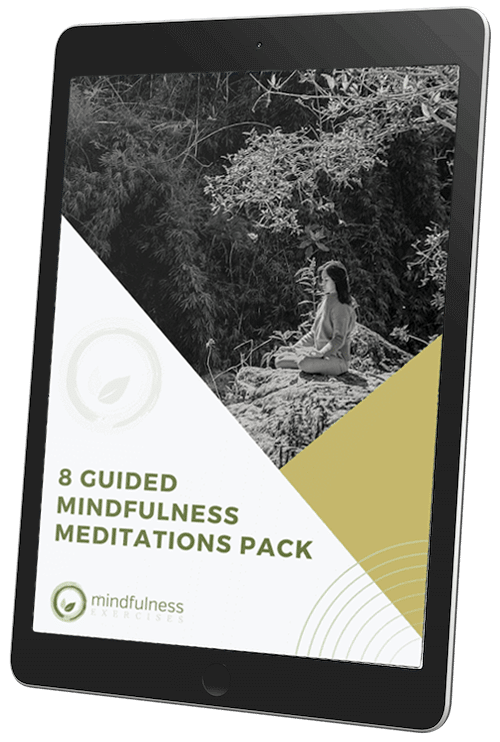Enter your name and email address to download this ebook.
Here Is Your Free Ebook:
Generosity First
March, 2003
Several years ago, when Ajaan Suwat was teaching a retreat at IMS, I was his interpreter. After the second or third day of the retreat he turned to me and said, “I notice that when these people meditate they’re awfully grim.” You’d look out across the room and all the people were sitting there very seriously, their faces tense, their eyes closed tight. It was almost as if they had Nirvana or Bust written across their foreheads.
He attributed their grimness to the fact that most people here in the West come to Buddhist meditation without any preparation in other Buddhist teachings. They haven’t had any experience in being generous in line with the Buddha’s teachings on giving. They haven’t had any experience in developing virtue in line with the Buddhist precepts. They come to the Buddha’s teachings without having tested them in daily life, so they don’t have the sense of confidence they need to get them through the hard parts of the meditation. They feel they have to rely on sheer determination instead.
If you look at the way meditation, virtue, and generosity are taught here, it’s the exact opposite of the order in which they’re taught in Asia. Here, people sign up for a retreat to learn some meditation, and only when they show up at the retreat center do they learn they’re going to have to observe some precepts during the retreat. And then at the very end of the retreat they learn that before they’ll be allowed to go home they’re going to have to be generous. It’s all backwards.
Over in Thailand, children’s first exposure to Buddhism, after they’ve learned the gesture of respect, is in giving. You see parents taking their children by the hand as a monk comes past on his alms round, lifting them up, and helping them put a spoonful of rice into the monk’s bowl. Over time, as the children start doing it themselves, the process becomes less and less mechanical, and after a while they begin to take pleasure in giving.
At first this pleasure may seem counterintuitive. The idea that you gain happiness by giving things away doesn’t come automatically to a young child’s mind. But with practice you find that it’s true. After all, when you give, you put yourself in a position of wealth. The gift is proof that you have more than enough. At the same time it gives you a sense of your worth as a person. You’re able to help other people. The act of giving also creates a sense of spaciousness in the mind, because the world we live in is created by our actions, and the act of giving creates a spacious world: a world where generosity is an operating principle, a world where people have more than enough, enough to share. And it creates a good feeling in the mind.
From there, the children are exposed to virtue: the practice of the precepts. And again, from a child’s point of view it’s counterintuitive that you’re going to be happy by not doing certain things you want to do—as when you want to take something, or when you want to lie to cover up your embarrassment or to protect yourself from criticism and punishment. But over time you begin to discover that, yes, there is a sense of happiness, there is a sense of wellbeing that comes from being principled, from not having to cover up for any lies, from avoiding unskillful actions, from having a sense that unskillful actions are beneath you.
So by the time you come to meditation through the route of giving and being virtuous, you’ve already had experience in learning that there are counterintuitive forms of happiness in the world. When you’ve been trained through exposure to the Buddha’s teachings, you’ve learned the deeper happiness that comes from giving, the deeper happiness that comes from restraining yourself from unskillful actions, no matter how much you might want to do them. By the time you come to the meditation you’ve developed a certain sense of confidence that so far the Buddha has been right, so you give him the benefit of the doubt on meditation.
This confidence is what allows you to overcome a lot of the initial difficulties: the distractions, the pain. At the same time, the spaciousness that comes from generosity gives you the right mindset for the concentration practice, gives you the right mindset for insight practice—because when you sit down and focus on the breath, what kind of mind do you have? The mind you’ve been creating through your generous and virtuous actions. A spacious mind, not the narrow mind of a person who doesn’t have enough. It’s the spacious mind of a person who has more than enough to share, the mind of a person who has no regrets or denial over past actions. In short, it’s the mind of a person who realizes that true happiness doesn’t see a sharp dichotomy between your own wellbeing and the wellbeing of others.
The whole idea that happiness has to consist either in doing things only for your own selfish motives or for other people to the sacrifice of yourself—the dichotomy between the two—is something very Western, but it’s antithetical to the Buddha’s teachings. According to the Buddha’s teachings, true happiness is something that, by its nature, gets spread around. By working for your own true benefit, you’re working for the benefit of others. And by working for the benefit of others, you’re working for your own. In the act of giving to others you gain rewards. In the act of holding fast to the precepts, holding fast to your principles, protecting others from your unskillful behavior, you gain as well. You gain in mindfulness; you gain in your own sense of worth as a person, your own self‐esteem. You protect yourself.
So you come to the meditation ready to apply the same principles to training in tranquility and insight. You realize that the meditation is not a selfish project. You’re sitting here trying to understand your greed, anger, and delusion, trying to bring them under control—which means that you’re not the only person who’s going to benefit from the meditation. Other people will benefit—are benefiting—as well. As you become more mindful, more alert, more skillful in undercutting the hindrances in your mind, other people are less subject to those hindrances as well. Less greed, anger, and delusion come out in your actions, and so the people around you suffer less. Your meditating is a gift to them.
–
If you liked this free mindfulness ebook and would like to make a direct financial contribution to this teacher, please contact them here: http://www.dhammatalks.org/
—
Material on this site is licensed under a Creative Commons Attribution-Noncommercial-No Derivative Works 3.0 License
Enter your name and email address to download this ebook.






